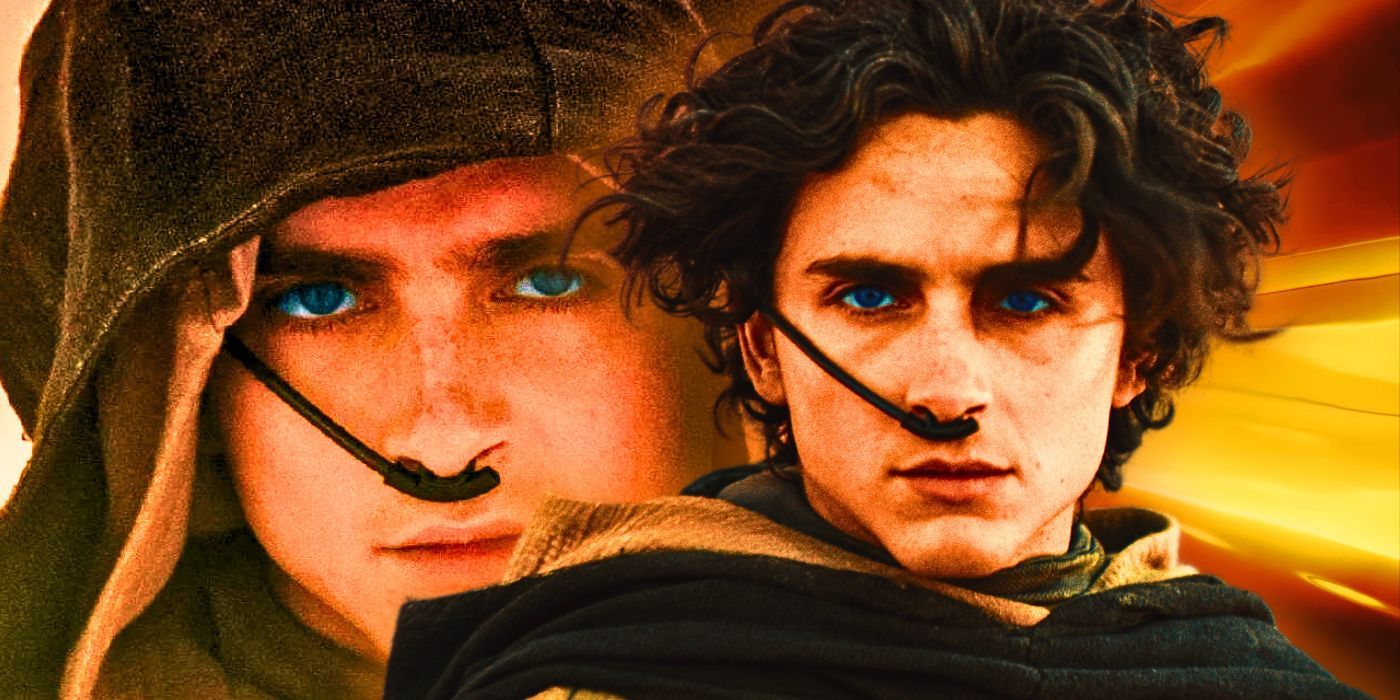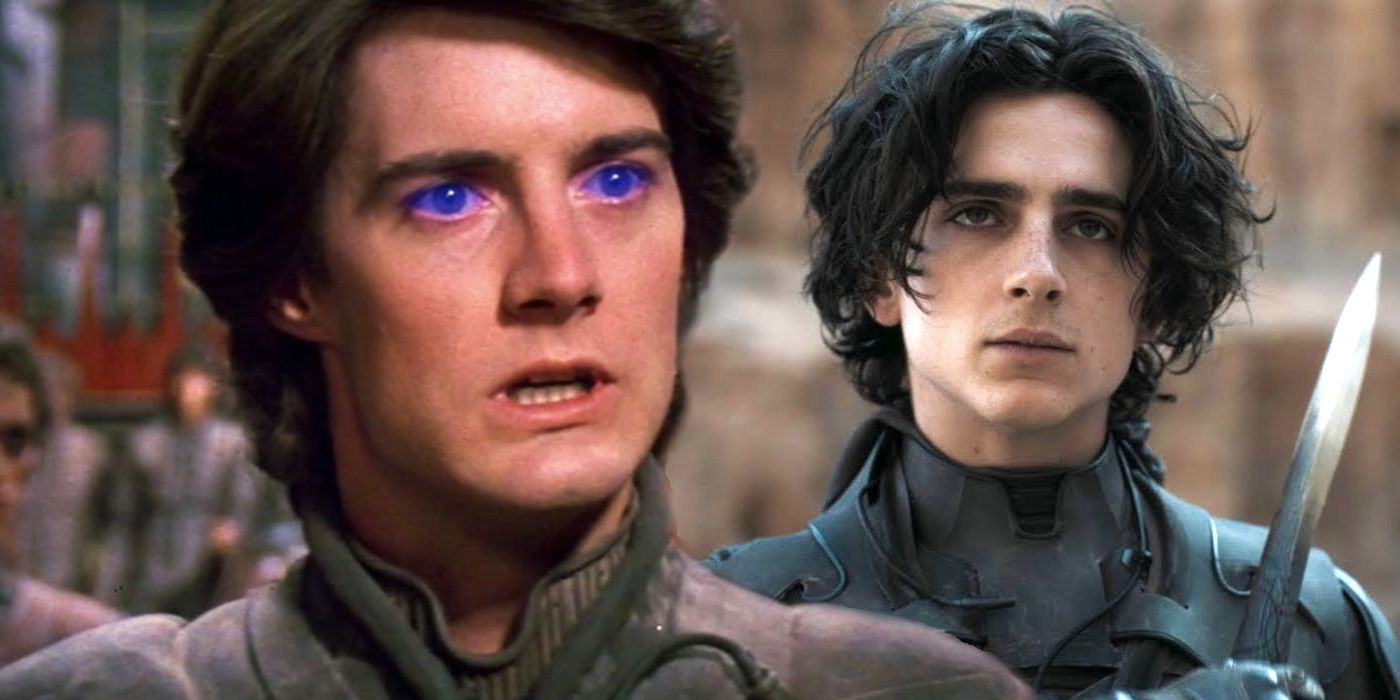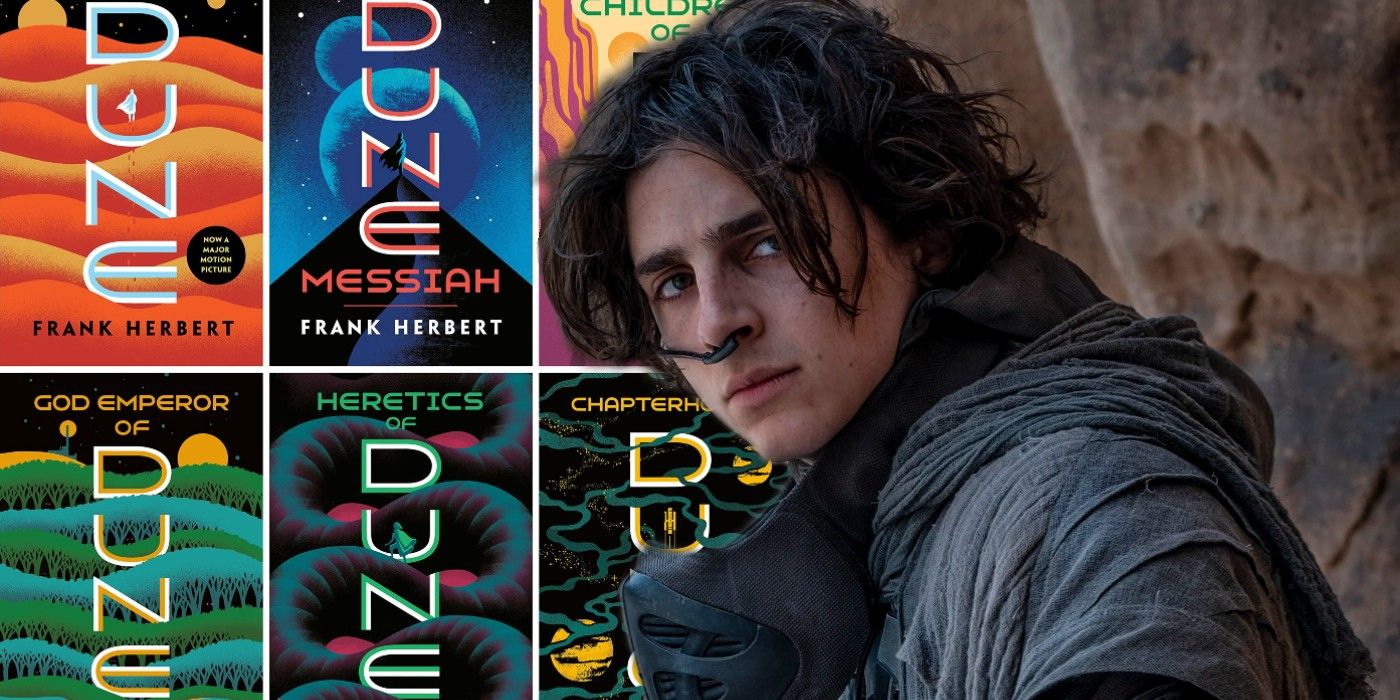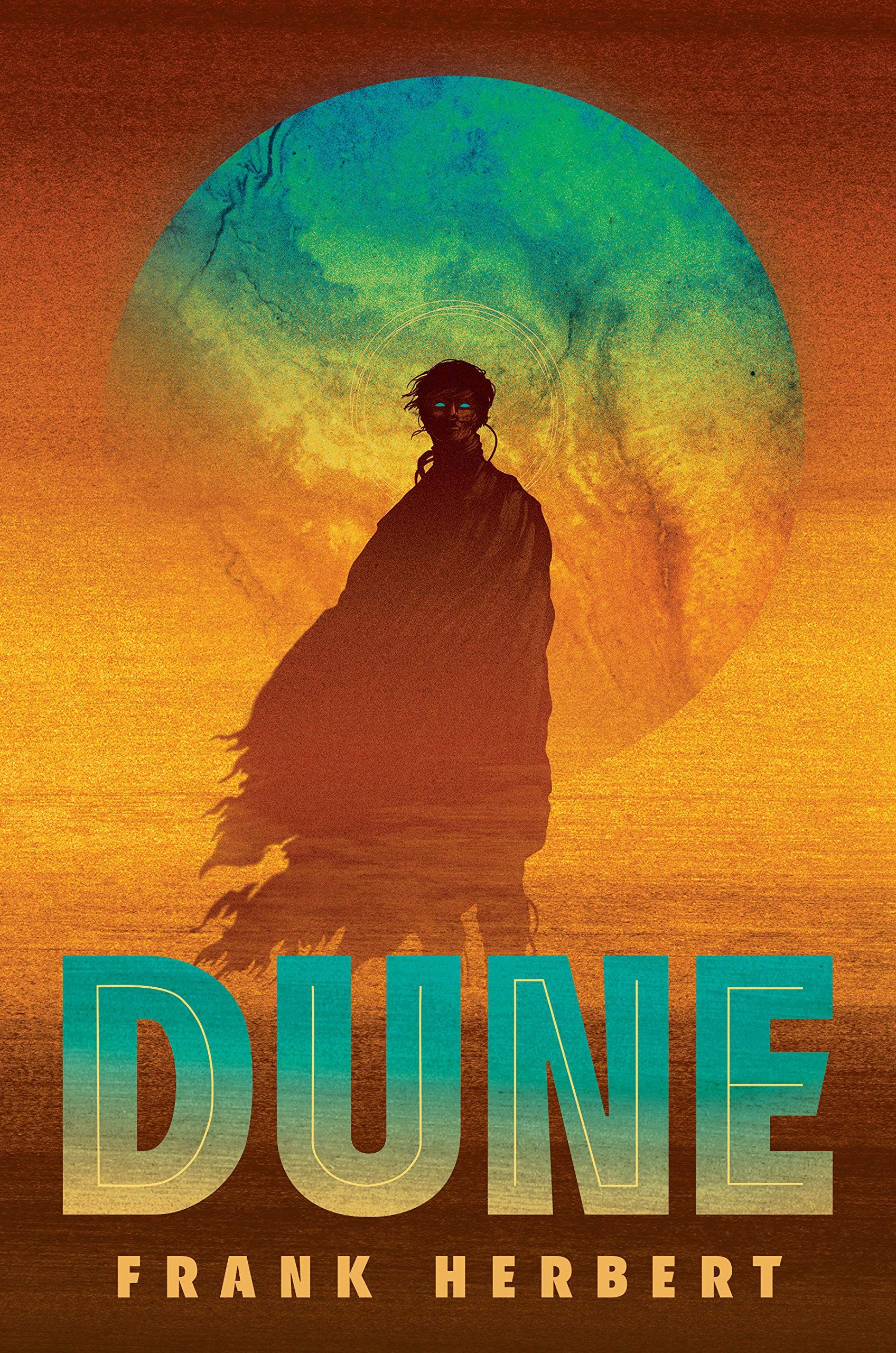All 3 Dune Movies, Ranked Worst To Best
All 3 Dune Movies, Ranked Worst To Best
Frank Herbert's Dune is notoriously difficult to adapt thanks to its dense story and themes. Accordingly, some movies have been better than others.

Custom image by Debanjana Chowdhury
SUMMARY
- Lynch's 1984 Dune may be visually stunning, but its rushed narrative loses key aspects of the rich story, leading to a disappointing adaptation.
- Villeneuve's 2021 Part One takes a slower, deliberate approach, successfully exploring the intricate lore and characters of Herbert's world.
- Part Two of Villeneuve's adaptation excels in delivering a complete and satisfying conclusion, elevating the franchise to new heights.
Warning: Contains SPOILERS for Dune: Part Two
Although various attempts have been made to translate Frank Herbert's novel to the big screen, some Dune movies are far more successful than others. The source material was long assumed unfilmable, thanks to its blend of dense philosophy, spiritualism, and incredible imagery. However, the combination of ambitious filmmakers and technological advancements post-1965 means that there have now been three attempts to realize Herbert's original vision – all with their own flaws and qualities.
David Lynch became the first director to successfully adapt Herbert's book, releasing Dune in 1984. The movie had a long and troubled production history – following in the footsteps of Chilean director Alejandro Jodorowsky's wildly extravagant proposed 14-hour version of the story. The poor financial performance of Lynch's version saw the rights remain dormant for decades, before French-Canadian auteur Denis Villeneuve adapted the first half of the book in 2021. Three years later, his follow-up arrived, completing the story. While each version has strengths and weaknesses, there is also a clear hierarchy of Dune movies. RELATED
RELATED
Dune: 12 Biggest Differences Between The 2021 & 1984 Versions
3
Dune (1984)
Despite some incredible visuals and stand-out scenes, David Lynch's 1984 Dune is easily the weakest of the movies based on the book, and living proof of how unwieldy the novel can be. In trying to wrestle Herbert's 400-page narrative into a concise two-hour feature, Lynch's movie loses the essence of what Dune is really about. Key details around Bene Gesserit culture, the Fremen, the importance of Paul's powers, and myriad other tidbits that make up the story's rich tapestry are lost as Lynch and the studio desperately try to craft a coherent plot out of lore that, without adequate exposition, quickly becomes impenetrable.
Beyond the skeletal storytelling and stripped-down background, there are also a number of thematic issues with Dune 1984. Problematic elements from Herbert's original, like Baron Harkonnen's portrayal as a predatory homosexual, make certain scenes incredibly uncomfortable. Furthermore, the movie fundamentally misunderstands the nuance of Paul's characterization, turning him into a straightforward, freedom-fighting Hollywood hero, rather than something more sinister.
Although Dune 1984's problems are manifold, there are explanations for the failure. A key issue was studio interference and savage cuts made to Lynch's intended three-hour version. This limited the amount of exposition, making much of the movie completely inaccessible to the uninitiated. Dune 1984 certainly has some redeeming features – boasting incredibly lavish sets and awe-inspiring costume design. Unfortunately, this visual splendor cannot make up for the butchered narrative. RELATED
RELATED
Dune 1984 Vs 2021: Who Played Each Role Best?
2
Dune: Part One (2021)
A very different attempt to David Lynch's original – both in terms of story and style – Denis Villeneuve's 2021 movie Dune: Part One proved definitively that it was possible to do justice to Herbert's book on the big screen. Taking a much more deliberate approach than Lynch's film, Dune: Part One meanders through the first half of Herbert's book for 155 minutes, establishing key characters, rivalries, and motivations. It may be a lot less frenetic than Lynch's version, but the strategy pays dividends.
By taking its time to explore the rich world Herbert created, Dune: Part One reveals a much more intricate story, full of dense lore and incredible imagination. It also makes clear just how limited Lynch was by having to present his vision in a single two-hour movie. The sheer number of characters and themes revealed in Dune: Part One makes progressing the story at any great pace seem almost impossible.
Admittedly, there are times when the narrative sags under the weight of its world-building, with character development often superseding action. There is also an undeniable sense that the film's structure inevitably leaves the story feeling incomplete, as it ends just as Herbert's novel really ramps up. Nevertheless, Dune: Part One does an admirable job of establishing key characters like Paul Atreides and Lady Jessica, making the stakes and competing factions in Dune's universe clear, and bringing Herbert's world to life without compromising the scope of his story.
1
Dune: Part Two (2024)
While both Dune: Part One and Dune 1984 have clear merits, the indisputable winner of the best Dune movie title is Denis Villeneuve's sequel to his 2021 hit. Unlike Dune: Part One, Part Two exists within the context established by the director's earlier film. This means that, while new characters and worlds do play an important role, exposition can be replaced by action. Delivered with the same awe-inspiring style seen in the first movie, Dune: Part Two is a towering achievement in sci-fi filmmaking – combining the genre's potential for existential philosophy and unsurpassed visual wonder.
2:01 RELATED
RELATED
Every Dune Book Ranked Worst To Best
A further advantage for Dune: Part Two is that it does not have to contend with telling an incomplete story. Much like previous two-part releases like Harry Potter and the Deathly Hallows, the concluding chapter can deliver on all the drama tantalizingly promised in the first movie. Dune: Part Two resolves open storylines expertly, weaving together narratives established in Part One and bringing character arcs full circle. Not only does it succeed on its own terms, but it also improves the original movie – the true hallmark of any great follow-up.
Although die-hard Dune fans may not find the film flawless, given the many important changes to the book, the story more than holds up and arguably benefits from not including complicated characters like Alia Atreides. It also adheres to the novel's complex morality, proving that – in the real world – heroes and villains aren't completely black and white. The satisfying completion of the narrative alongside breathtaking battle scenes and heart-wrenching drama makes Dune: Part Two comfortably the best Dune movie to date.
Dune
Created by
Frank Herbert
First Film
Dune (1984)
Cast
Kyle MacLachlan , Timothee Chalamet , Zendaya , Austin Butler , Javier Bardem , Rebecca Ferguson , Oscar Isaac , Jason Momoa , Stellan Skarsgård , Josh Brolin , Dave Bautista



















































